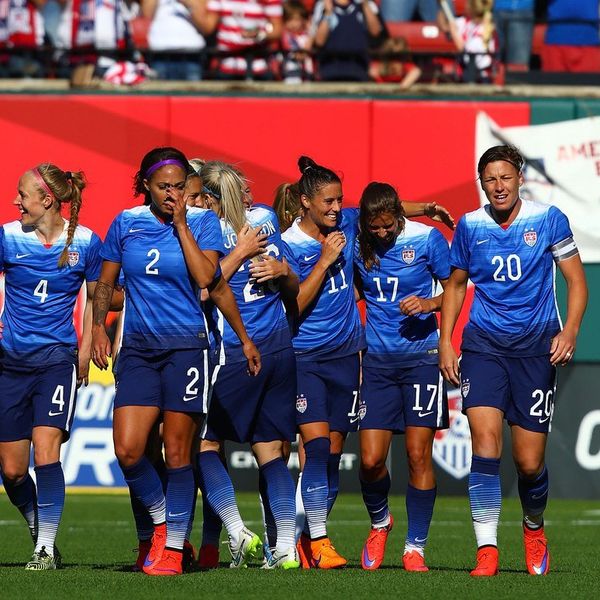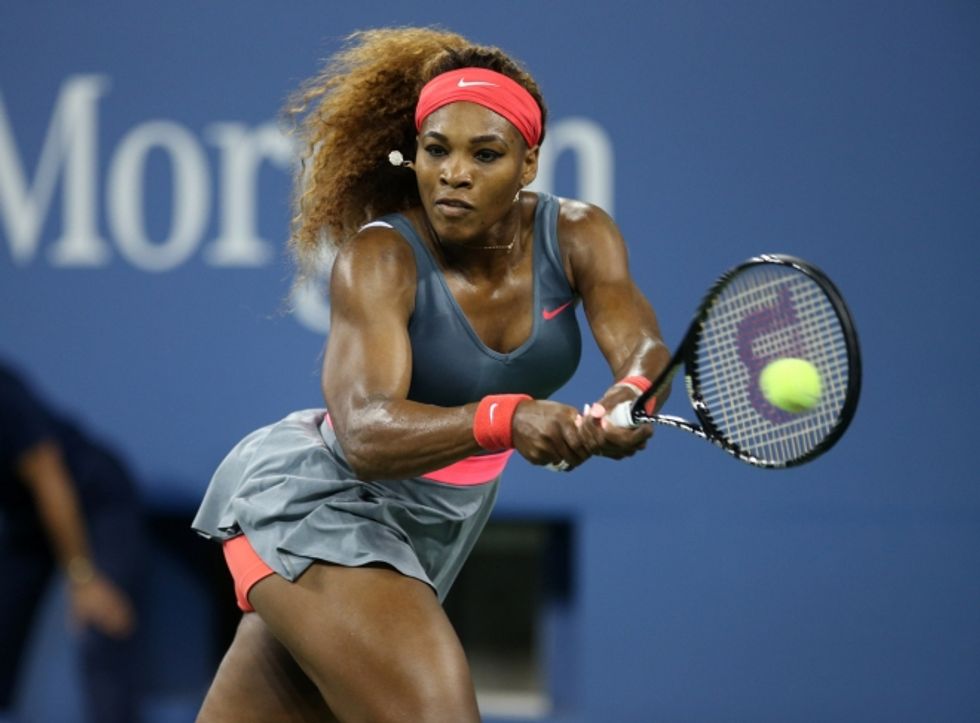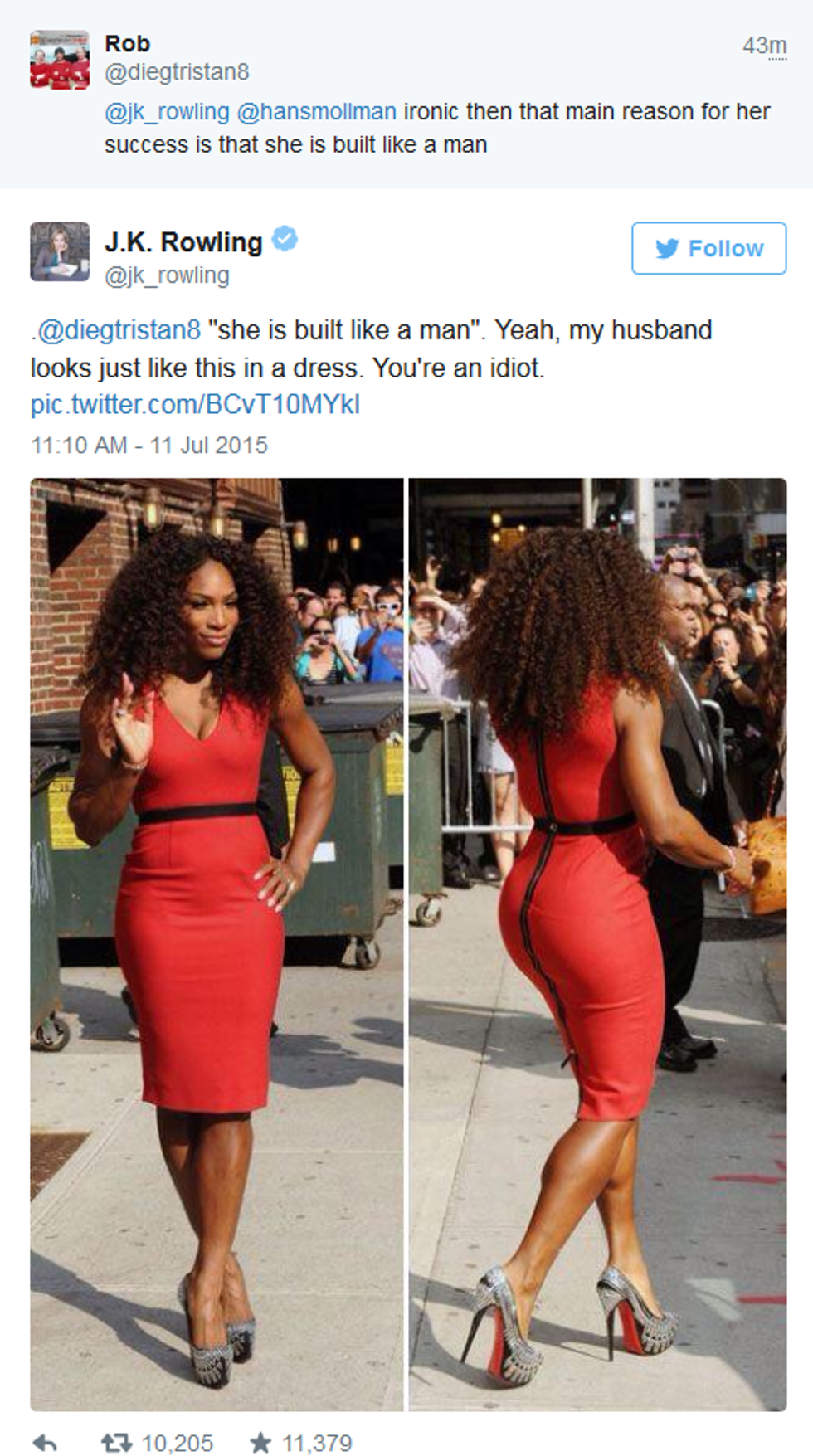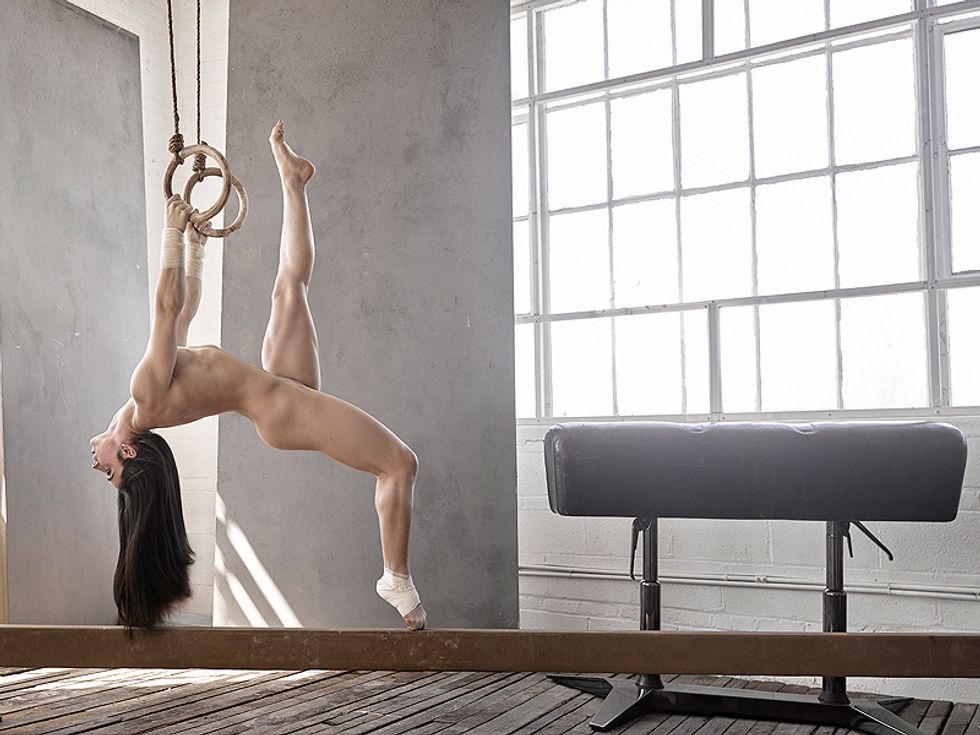Serena Williams won her sixth Wimbledon title last Saturday, completing her second “Serena Slam” by winning her fourth consecutive major title and winning a total of 21 Grand Slams. After all of these accomplishments on the court, it seems like Serena has it all. She is the best player in women’s tennis, arguably the best player in tennis overall and quite possibly the greatest athlete in the world. Unfortunately, the accomplishments she has earned on the tennis court and her athleticism are overshadowed by the aftermath on the Internet and in newspapers. Serena Williams just won on tennis’ most prestigious stage, yet all people are talking about this week is her body and her flaws.
The public took to Twitter and other social media sites after her win over Spanish player Garbine Muguruza, bashing her body and calling her a man. Despite all of the hate and body-shaming directed at Williams, she had some strong women backing her up on the Internet and defending her sheer strength and power.
One hater on Twitter used his 140-character limit to send out a simply ignorant message about Williams's body, writing “Ironic then that main reason for her success is that she is built like a man.” This was quickly countered by one of the most successful women in the world, J.K. Rowling. The “Harry Potter” author shot back at the Twitter user by saying, “‘she is built like a man’. Yeah, my husband looks just like this in a dress. You’re an idiot.”
This is not the first time people have body-shamed Williams and confused her strength and muscles for flaws. Sports journalist Jason Whitlock made some outrageous comments in several columns in 2009 about Williams. One such column from Fox Sports said the following about her body and work ethic:
“She’d rather eat, half-ass her way through non-major tournaments and complain she’s not getting the respect her 11-major-championship résumé demands… [S]eriously, how else can Serena fill in her size 16 shorts without grazing at her stall between matches?”
It is one thing to comment on a player that may be out of shape, but it is a different matter to disrespect an athlete of Williams's caliber by using the language Jason Whitlock used in this excerpt from his grossly ignorant article. The biggest problem with Whitlock’s argument is that it focuses solely on Williams’s body and disregards all of her accomplishments, the reason she is famous in the first place.
Serena Williams is 33 years old and has shown a dominant winning streak through her entire career. Her athleticism has stood the test of time and she has never once allowed a bad game or injury to throw her off her path of world tennis domination. The same determination to brush aside problems goes for this body-shaming trend that has followed her throughout her career and still follows her even after her sixth Wimbledon championship. It is not easy to read these comments on social media or see them in published articles and reports, but she has prevailed quite powerfully over the years. Twenty-one Grand Slams basically seals that deal for her.
She is not the only female athlete to deal with body-shaming,
however. Aly Raisman, my hometown’s own Olympic gold medalist in gymnastics, was recently featured in ESPN's Body Issue, in which
athletes pose nude in their respective sports to demonstrate the power and
strength of all players. Raisman led the USA women’s gymnastic team as captain, won gold in two events and placed third for bronze in the all-around
competition. Just like Williams, you would think Raisman has it all.
Going to the Olympics, winning gold for her country and captaining a dominant
team are amazing feats that only a handful of people will ever be able to do.
But these days, far too many girls can say something very different. They can
attest that they have been body-shamed for their strength and athleticism.
Raisman spoke in the ESPN Body Issue about the hate she gets for her
“masculine” features, saying “Instead of being insecure about my muscles, I've
learned to love them. I don't even think of it as a flaw anymore because it's
made me into the athlete that I am.”
These two women have opened the door for this conversation to happen, and they have brought light to the body-shaming of female athletes. It starts with the acknowledgement that people are demeaning women for their strength, muscle and athletic ability. We must realize that we cannot praise male athletes for their giant biceps and strong leg muscles, yet shame women for having the same features.
Sports are about strength and perseverance, so why do men get to use their muscle and athleticism to fight through sports while women need to lose their “masculine” muscles and become skinnier and toned? This is the first thing to address.
Secondly, more women must step up like Aly Raisman and J.K. Rowling to empower these female athletes to love their strength and athleticism as power tools, not “masculine features” to hide.
Girls, take pride in those muscles, you weren’t working in
the gym to hide them!























